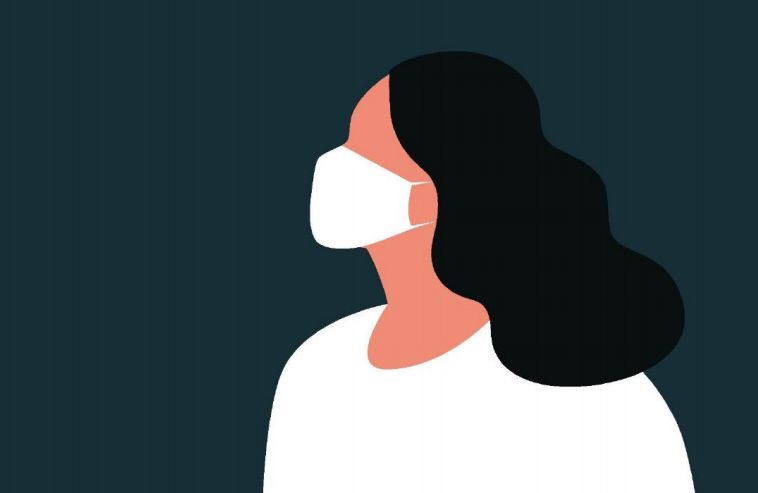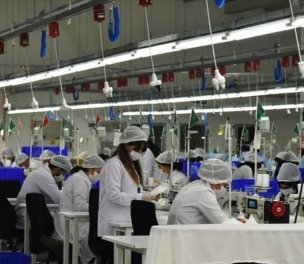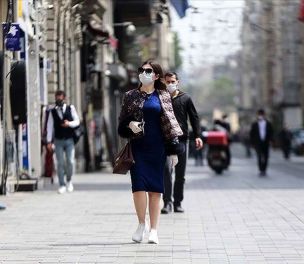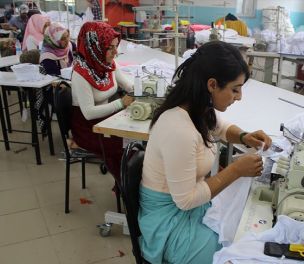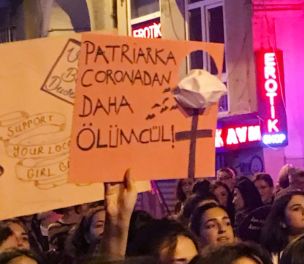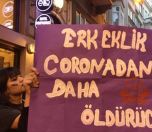Image: UN Women
Click to read the article in Turkish
UN Women's Turkey office has released a study on the economic and social impact of the Covid-19 pandemic on the men and women in the country.
The publication titled, "Rapid Gender Assessment of Covid-19 implications in Turkey" aims to "deliver an accurate picture of the consequences of the COVID-19 crisis on women and men, to make their distinct and changing needs and priorities visible."
A total of 1,508 computer-assisted telephone interviews (759 women and 749 men) were conducted during the study between April 19 and 25.
The average age of the participants was 38.7 with women's average being 37.8 and men's average being 39.7.
Here are some key findings of the study:
Women have had higher levels of job loss
The gender difference in job loss was high overall for women (18.8 percent) compared to men (14.2 percent).
The difference in job loss was noted to be higher in the sub-category of the surveyed people who owned a business and employed other people, where 20 percent of the women compared to 8.7 percent of the men in this category stated job loss.
Since the start of Covid-19, one-third of women and one-quarter of men took leave from their work (paid, partially paid, or unpaid). Importantly, for half of the women who went on leave, the leave was unpaid (15.7 percent), exceeding the share for men (11.2 percent).
More than half of the whole employers and self-employed (53 percent) stated that after the Covid-19 outbreak their works decreased and/or businesses shrank.
More women have started to work from home
More women expressed that they started to work from home compared to men. This can be again related to traditional roles and caregiving responsibilities of women in the household and it can be related to the horizontal segregation of the labor market.
The gender gap was wider for the women who said "yes, there is a change in the workplace" in the Northeast Anatolia and West Marmara regions.
Women have experienced a higher increase in domestic work
Both women and men reported an increase in their workload in the household, but women expressed an increase to a larger degree across all categories of domestic work.
The ratio of the increased workload of women was the highest in the categories of "cleaning and maintaining own dwelling and surroundings", "cooking and serving meal", where 77.6 percent and 59.9 percent of the surveyed women stated an increase respectively in these household chores compared to 47 percent and 23.9 percent of the surveyed men.
This corresponds to the traditional roles and gendered division of labor, also evident in time use surveys. The activity assessed as the one where most time was spent since Covid-19 for both women and men was "cleaning and maintaining own dwelling and surroundings."
Most time-consuming activities
There were significant gender differences: This is indicated as the most time-consuming activity by 56.1 percent of women and 27 percent of men. The second most-time consuming activity for women was cooking food and serving (24.6 percent), and for male respondents shopping for the family and household members (26.2 percent).
Besides, men expressed that they do not usually do either cooking (40.7 percent) or cleaning (25.5 percent) while these ratios were only 5 percent and 2.2 percent for women respectively, which also shows that women experience an increased burden of the housework compared to men.
Positive signs of men's engagement in household work
When asked if their partner helped them more with domestic and care responsibilities, more than two-thirds of women who provided responses gave a positive assessment, and less than one third said there has not been any change (35 percent vs. 13 percent of all female respondents, roughly corresponding to the number of married women in the sample).
Effects on emotional health
54 percent of women and 49 percent of men stated that they experienced problems such as stress and anxiety as a result of the outbreak. The vast majority (96.5 percent) of the participants living in İstanbul expressed that their mental/emotional health was negatively affected, followed by the regions of Northeast Anatolia, Central East Anatolia, Aegean, and West Anatolia.
The pandemic itself and the measures including curfews are considered to be the reasons for an increased level of stress and anxiety.
An average of 8 percent experienced physical illness (8.8 percent of women and 7.3 percent of men) and 6 percent experienced illness of a family/household member (5.1 percent of women 7.2 percent of men). (EMK/VK)




